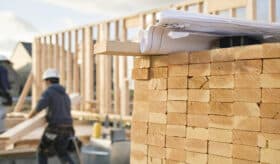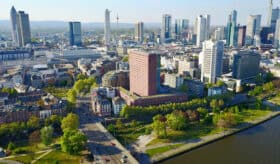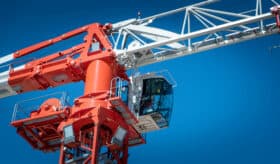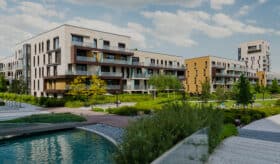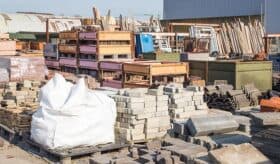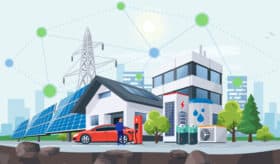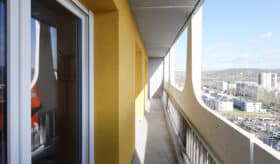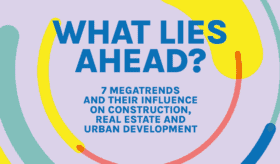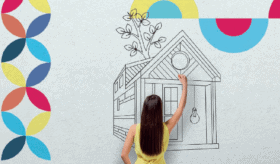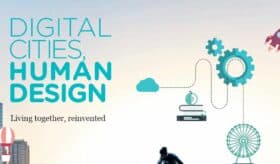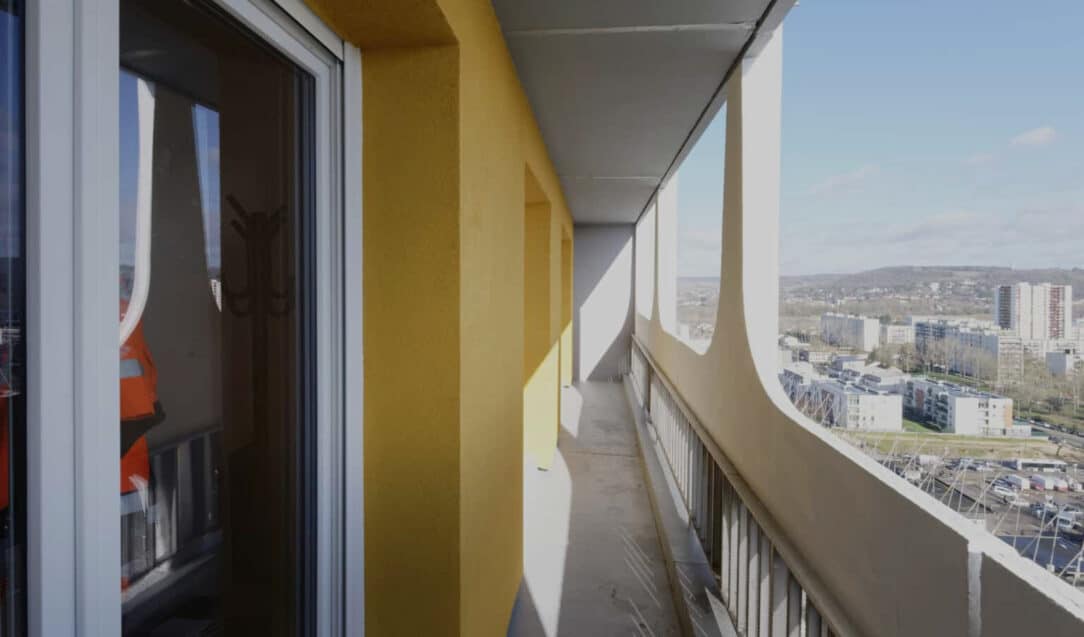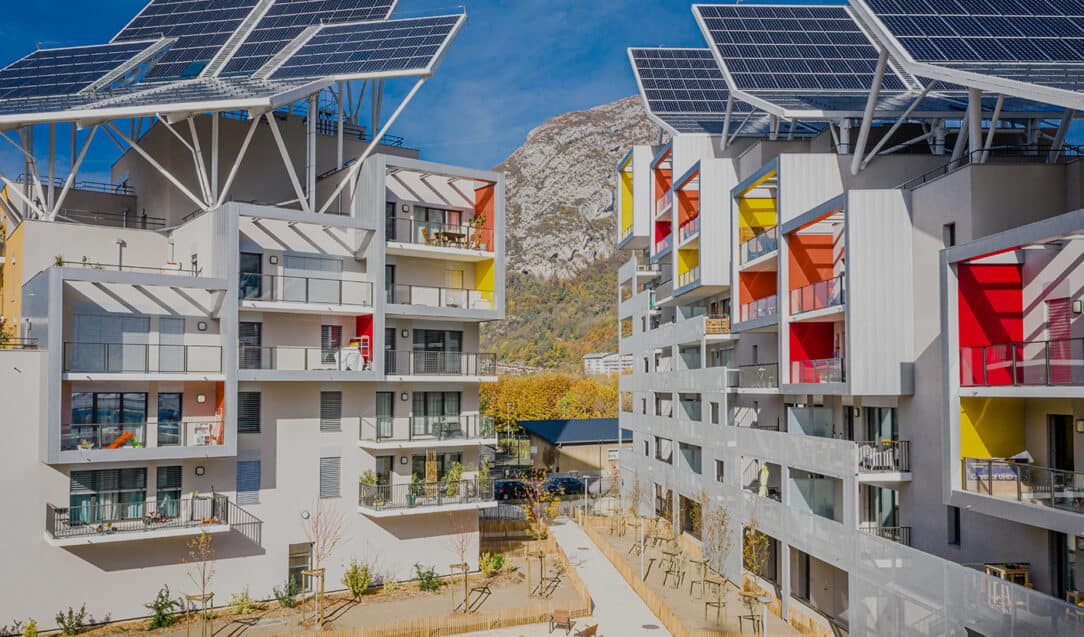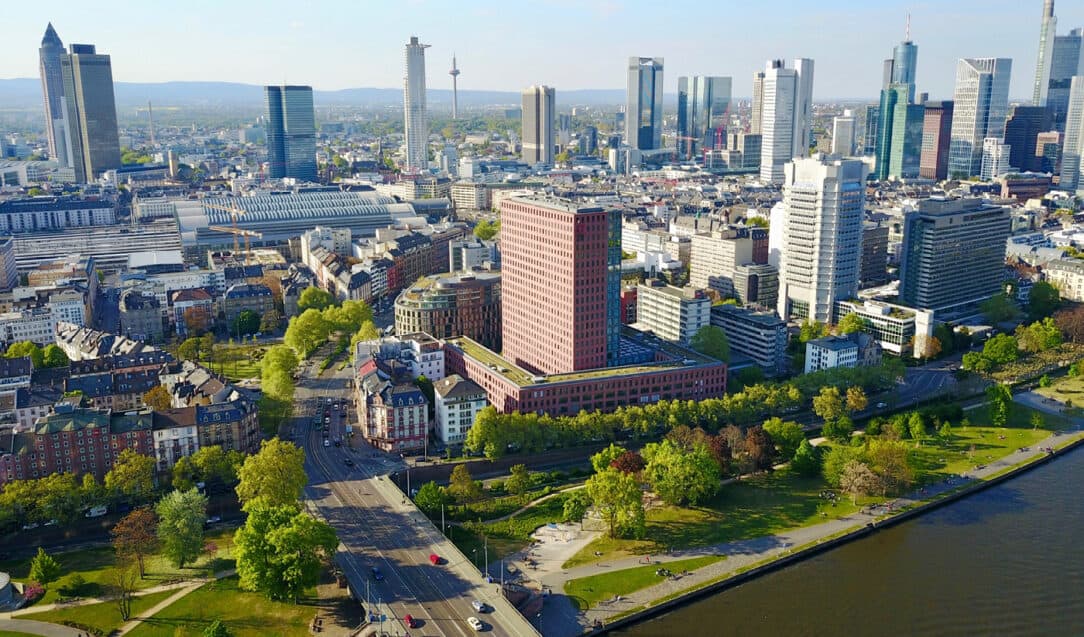Resilience, the future of sustainable territories
Resilience” seems to have made a name for itself in French territories. It’s even become fashionable. For better or for worse: the concept provides a good perspective for addressing global change, but its aura of “novelty” and “transition”, essential for any project today, means that it is likely to be misused.
Time, a key resource for cities
Today’s cities face many challenges. The ecological emergency is pushing us to reduce our carbon footprint, to halt the sprawl of cities into natural areas, to preserve natural resources and to fight against the collapse of biodiversity.
Wood construction, a sector with a future
Wood construction is currently gaining ground in all construction sectors. And this is only the beginning! In the context of decarbonisation of the building sector, the RE2020 is bringing bio-sourced materials to the forefront. Let’s take a look at a flourishing sector.
Positive health: which levers for buildings, work spaces, regions and healthcare facilities?
Multiple societal transitions (demographic, epidemiological, urban, digital) are influencing the field of health and generating new challenges: how can we extend the healthy life expectancy of an ageing society?
Data and digital as decision-making aids with the Lab TP
Formerly known as Tunnel Lab, the Lab TP is now expanding its range of innovations. Nicolas Braud, Director of Lab TP, Innovation, Digital and Big Data at Bouygues Travaux Publics, presents the development of his missions with his team.
Paris 2024: building a legacy for the region
While the tradition of building Olympic villages dates to 1924, when the last Paris Games were held, it was not until 2003 that the legacy dimension of the Games appeared in the Olympic Charter. SOLIDEO, the delivery authority for all the permanent works of the coming Paris Olympic Games, has put this idea of a reduced or positive long-term impact at the heart of its plans to prepare for the post-Olympic period, for example by favouring renovation over new construction. While some developments have already been strongly criticised, can the 2024 Olympics be a new model for Olympic urban planning? How can we work to build a shared and positive legacy of this event for cities?
Is coliving the future for all of us?
Originating in the US, over the past decade coliving has rooted itself in the France’s urban landscape. This community living concept is contrary to the popular French proverb that says you’re better off with a tiny place of your own than with a big place that belongs to someone else.
“Strong support is vital when joining forces with startups”
Bouygues Construction was one of the first construction companies to focus on innovation, and more particularly, open innovation. The group has created a dedicated team which works with our long-standing partner: Impulse Partners. We are now renewing that collaboration to reinforce Bouygues Construction's involvement with startups. Decryption.
What type of city do we want for our children?
Given that the majority of the world’s population will soon be living in urban areas, it is increasingly necessary to rethink our town planning so that towns and cities more closely reflect the needs and requirements of younger children.
Virginie Alonzi
Virgnie joined Bouygues Construction in 2001, having previously fulfilled a number of functions. Today, she is the Group’s Prospective manager, a post she has occupied since June 2015. In a context of uncertainty and systemic crises, she takes particular interest in urban and territorial forecasting in order, through a holistic approach, to gain a better […]
What will buildings look like tomorrow?
As a partner in the initiative, we now want to share the third stage with you, to present the four brand new prospective scenarios that anticipate possible futures for building and real estate in 2050.
Buildings of tomorrow as materials banks
In mediaeval and Renaissance Rome, the people did not hesitate to use ancient buildings as a source of iron, bricks and other construction materials, just as Spanish settlers did in Aztec and Inca cities, stripping stones from ancient temples to build their own cathedrals. Tomorrow, will we be able to recover reusable components and materials from a building, to be reinvested in a new building instead of throwing them away or recycling them at great cost? This is the idea of the building as a materials bank.
Energies of the future: what energy mix to achieve carbon neutrality by 2050?
In 2019, France set itself the target of achieving carbon neutrality by 2050. If we are going to meet this climate commitment, we need to speed up the country's decarbonisation and redefine the energy system, two-thirds of which still depends on fossil fuels. At a time when the country is launching consultations on the future French Strategy on Energy and Climate, which will serve as the national roadmap for achieving carbon neutrality in 2050 and adapting our society to the impacts of climate change, three projections performed by ADEME (the French agency for ecological transition), RTE (the French transmission system operator) and NégaWatt (a think tank) question the energies of our future.
What if virtual real estate became a reality in tomorrow’s Metaverse?
The year is 2032 and a billionaire media mogul writes a shocking book about making a fortune in under a decade by solely investing in virtual real estate and ultimately becoming one of the largest property owners in the Metaverse. He makes his fortune from the capital gains on reselling his virtual properties and from renting out his best positioned plots in these alternative worlds. The virtual property programmes that are set up there involve the best meta-space designers to create striking meta-architectural experiences. Is this fiction or a future reality?
What progress have we made on energy retrofitting?
Energy retrofitting is a vital part of the construction market and it is becoming a crucial issue for the planet. Christian de Nacquard, Director of R&D and Innovation and Energy Performance at Bouygues Bâtiment International, examines this type of operation.
Marie Vabre
After 10 years as a TV reporter, Marie completed a Master’s degree in Sustainable Development & Organizations at the University of Paris-Dauphine. This training allows her to better analyze the major global issues. Her teachers included IPCC researchers as well as experts such as Fabrice Bonnifet, director of Sustainable Development for the Bouygues group. Today, […]
In 2022, do you really need to move house to live differently?
This is all the more relevant after a pandemic, several lockdowns and ongoing remote working: lifestyles are changing. This context is one reason, but there are others! The desires and expectations of the French whether they’re home owners or tenants, are changing, driven by ecological concerns as well as a quest for meaning, well-being and a balance between work and home life. Changes to the household structure also bring their share of “new needs”, as does the significant ageing of the population. It is now housing and cities that need to be adapted or even reinvented, and residents who want to take the plunge into change! In addition, is moving house really the only alternative when you want to benefit from a home adapted to the current needs of each individual?




